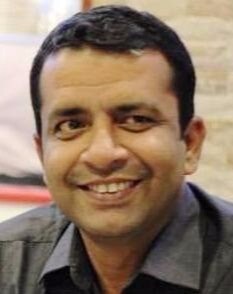
Anshu Gupta
Popularly known as the Clothing Man and the recipient of 2015 Ramon Magsaysay award, Anshu Gupta founded Goonj with a mission to highlight some basic but ignored needs of people on the development agenda, using clothing as a metaphor. Anshu studied mass communication apart from doing a Masters in Economics and started as a freelance journalist. He left a corporate communication job in 1998 and initiated Goonj..
Under his leadership, Goonj has taken the alarming growth of turning urban waste into a tool to trigger largescale work on various rural development issues. An Ashoka and Schwab Fellow for entrepreneurship, Anshu is creatively and flexibly matching and seamlessly weaving urban surplus into the changing priorities & realities of rural marginalized communities. He has built the genesis of a parallel trash based economy by creating barter between efforts of rural communities and urban surplus material as two new currencies.
Using the discard of the cities and efforts and knowledge of the poor as a new resource for eliminating poverty, Anshu’s work offers the world a sustainable economic model. By prioritizing the dignity of the receiver and putting the decision-making back into their hands. Anshu has also added ‘dignity’ as an important lens to define development for people.
Under Anshu’s leadership, Goonj has done massive disaster relief and rehab work pan India, turning every disaster into an opportunity to reach resources and attention to the most ignored communities. Listed by the Forbes magazine as one of India’s most powerful rural entrepreneurs, Anshu and Goonj have received a series national and international recognition on innovation, entrepreneurship, governance and public service including World Bank's development Market place award, Changemakers Innovation award to Jamnalal Bajaj Award for Fair Business Practices.
Apart from Goonj, Anshu recently started on a new journey of Gram Swabhimaan which was his inner yearning for a long time. He was intrigued with the kind of narration that as a society we have built over the years about certain people, communities. The idea is to make people realize that they are no less and avoid labels like bechara (helpless), besahara (destitute) and gareeb (poor) to describe oneself. Over the years, a popular opinion has been ingrained into their psyche with continuous hammering that they are lesser or the one lacking.
The citation of 2015 Magsaysay award, popularly known as the Noble Prize of Asia conferred on him says- “The Board of Trustees recognizes his creative vision in transforming the culture of giving in India, his enterprising leadership in treating cloth as a sustainable development resource for the poor, and in reminding the world that true giving always respects and preserves human dignity.”
A foody, an entrepreneur, an avid traveler, a photographer, and a journalist by heart, Anshu often pens prose and poetry, giving vent to his feelings and opinions on the issues that bother him about the world around him.
- Visit their website
- Goonj
- Contact via
- Model
- Non-profit Social Enterprise
- Headquarters
- India
- Areas of Impact
- South Asia, India
Goonj
Goonj views the waste of urban India as a surplus resource and under-utilized wealth. Although this is especially critical during times of disaster or emergency, Goonj moves materials throughout the year. This has necessitated the creation of collection centres in eight major cities and an extensive logistics network comprised of multiple partners.
Every year, Goonj receives over 1,000 tonnes of clothing, books, shoes, furniture, toys, utensils, construction materials, medical supplies, and office equipment. All of these items are sorted, repurposed, repacked and transported to communities according to their specific needs. While people in urban areas often discard what they no longer want, Goonj is teaching people to contribute based on what the poor actually need, thus giving dignity to the receiving communities.
Through its network of 250 NGOs, 200 company partners, and 500 volunteers, Goonj has an impact across 21 states in India. In exchange for cloth and other materials, and with the technical support of Goonj, village and slum communities are incentivized to organize local development and infrastructure-building programmes. This has led to 500 infrastructure projects across 1,500 villages every year, including the creation of schools, concrete roads, bridges, wells, irrigation canals and toilets.
The Cloth for Work programme is integral to this development work in ultra-poor areas. In the aftermath of a disaster, families are often only left with manual labour as a source for sustenance. Thus Goonj designs and distributes trade kits that match people’s skills (e.g. carpentry, shoe repair, cycle repair, tailoring, barber work). In exchange for the trade kit, recipients contribute to village development through labour or by giving a portion of the profit generated from the trade. Since 2008, Goonj has created kits for more than 20 different trades.
Another example is its sanitary napkins, created from remnants of discarded cotton cloth that is washed, sterilized, ironed and stitched. Goonj’s sanitary napkins are sold for INR1 per napkin and have reached 2 million first-time women users, leading to much needed education and discourse around women’s reproductive health in rural areas.
awardees
Our awardees

Tracey Chambers

Erzsébet Szekeres
